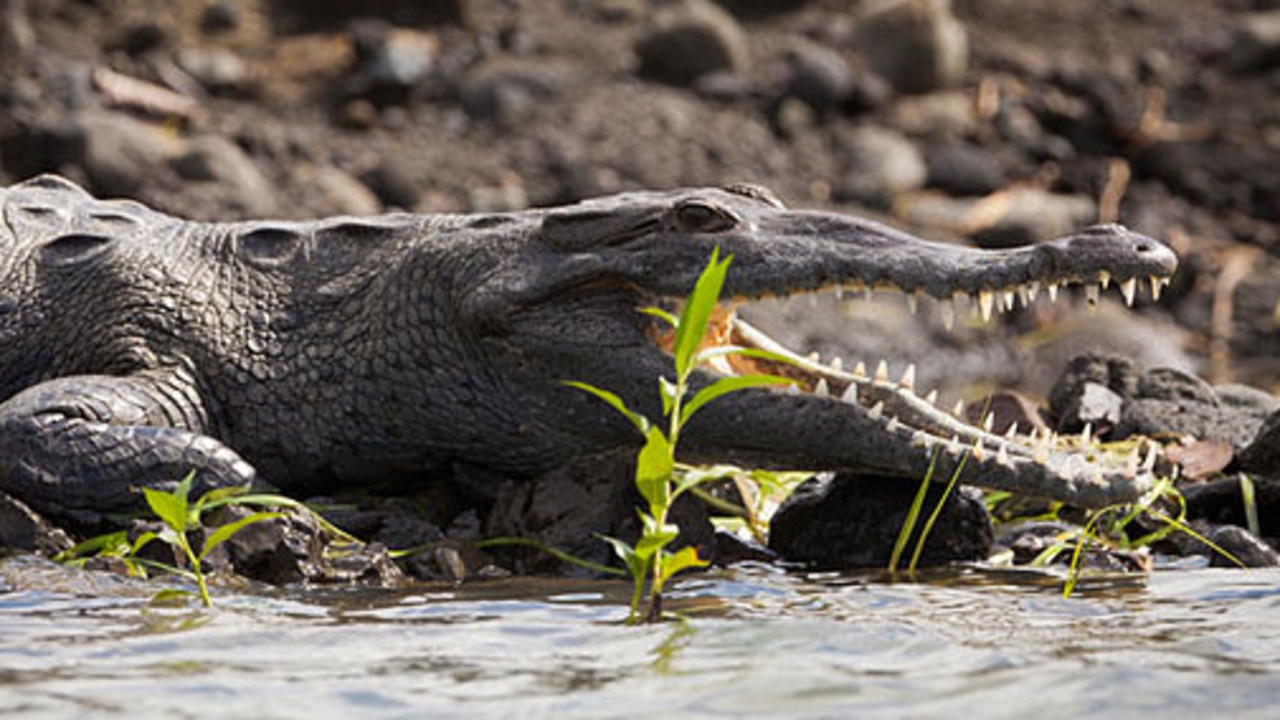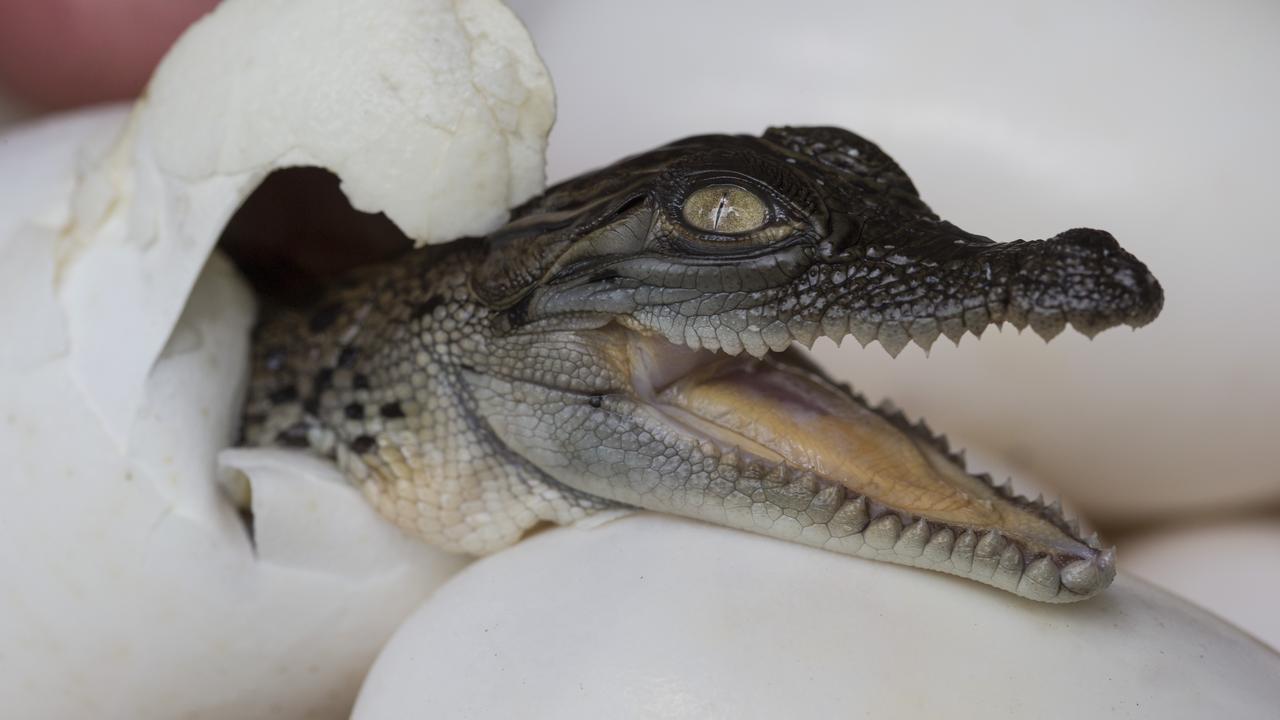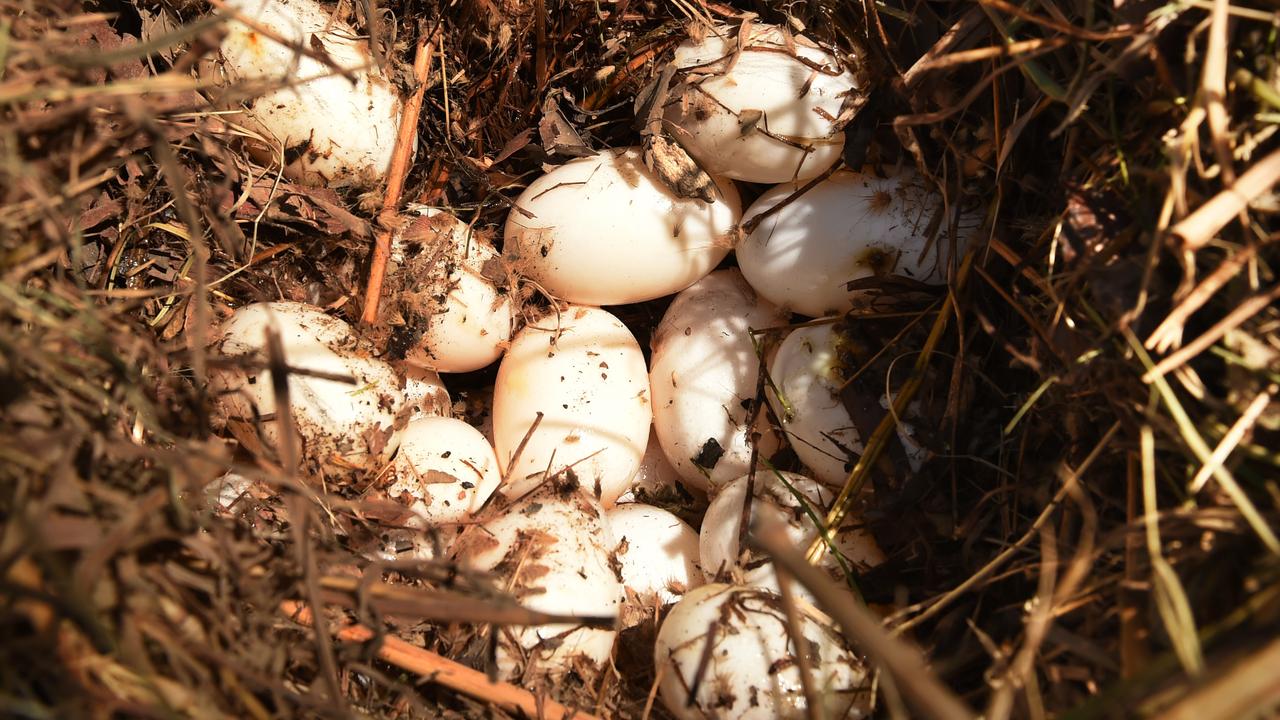Crocodile ‘virgin birth’ recorded for first time
A croc who had been alone for 16 years laid eggs all by herself in what is being hailed as the first ever crocodile “virgin birth”.
A croc who had been isolated in a reptile park for 16 years has laid a clutch of eggs in what is being hailed the first ever crocodile “virgin birth”.
Scientists announced the amazing discovery after the eggs were discovered in the female crocodile’s enclosure at a Costa Rican wildlife park.

It provides “tantalising insights” into the evolutionary origins of reptilian reproduction — and may even shed light on the reproductive capabilities of dinosaurs — scientists said.
The American crocodile — a species that is slightly smaller than its Australian counterpart — was taken into captivity in 2002 when she was two years old and was placed into an enclosure at Parque Reptilandia on Costa Rica’s Central Pacific coast.
She remained alone for the next 16 years, but in January 2018, a clutch of 14 eggs was found by her side.

Scientists revealed the incredible discovery on Wednesday, when they released a paper analysing the virgin birth phenomenon.
Virgin birth, also known as facultative parthenogenesis, is a type of asexual reproduction that occurs in species that would normally reproduce sexually. It’s been documented in birds, sharks, lizards and snakes, but never in crocodiles or alligators — until now.
In the study, which was published in Biology Letters, researchers said seven of the croc’s 14 eggs were viable. Zoo caretakers incubated these eggs, but they didn’t hatch, so after three months they opened them.
The contents of six of the eggs was “not discernible” but one contained a fully-formed but non-viable foetus. Genetic analysis showed it was almost identical to the mother.

The team, which was led by Virginia Tech entomologist Warren Booth, wrote that it was “disappointing” the egg failed to hatch, but not unusual as offspring born via facultative parthenogenesis often suffered abnormalities and failed to thrive.
More Coverage
The reproductive method, they added, may be more common among species on the brink of extinction, and studies investigating wild populations could reveal more cases.
The discovery means virgin births have been found in both birds, which descended from dinosaurs, and crocodiles, suggesting a common evolutionary origin. Birds and crocodilians are the remaining representatives of archosaurs — the group that also included dinosaurs and pterosaurs.
“This new evidence offers tantalising insights into the possible reproductive capabilities of extinct archosaurian relatives of crocodilians, notably the Pterosauria and Dinosauria,” the scientists wrote.






